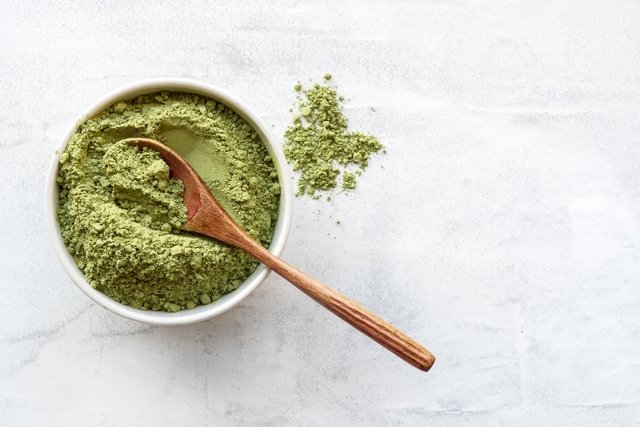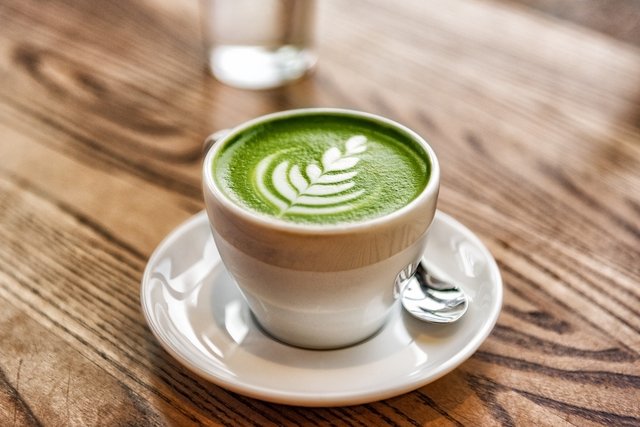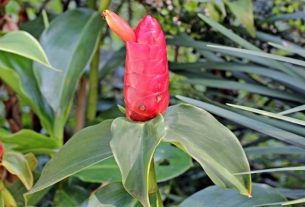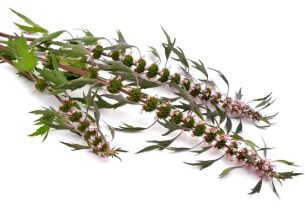Matcha tea is a green tea made from the youngest leaves of the Camellia sinensis plant, which are protected from the sun and then dehydrated. Matcha tea helps prevent premature aging, promote weight loss and improve mood.
These benefits are due to the fact that matcha tea is rich in caffeine, theanine and catechins, which are bioactive compounds with antioxidant, anti-inflammatory, thermogenic, stimulating and hepatoprotective actions.
Matcha tea is green in color and has a slightly bitter flavor, and is sold in powder or sachet form in supermarkets, pharmacies or health food stores. Matcha can be used to prepare teas or in recipes such as cake, bread, ice cream and juice.

Main benefits
The main health benefits of matcha tea are:
1. Promote weight loss
Matcha tea promotes weight loss because it is rich in caffeine, a substance that has thermogenic action, stimulating metabolism and increasing the burning of body fat.
Furthermore, the caffeine present in matcha tea also helps control hunger temporarily, reducing food intake and promoting weight loss. Check out other foods rich in caffeine.
It is important to remember that, to promote weight loss, matcha must be consumed in conjunction with a healthy diet and regular physical exercise.
2. Strengthen the immune system
Because it is rich in epigallocatechin, bioactive compounds that have immunomodulatory and anti-inflammatory actions, matcha tea strengthens the immune system, helping to fight bacteria, viruses and fungi.
3. Improve mood
Matcha tea improves mood and memory as it is rich in theanine, an amino acid that promotes relaxation, reduces stress and improves mood.
Furthermore, this tea also contains caffeine, a substance that stimulates the release of serotonin, a neurotransmitter that regulates anxiety, promoting happiness.
4. Maintain liver health
Matcha tea helps maintain liver health, as it contains antioxidants that regulate liver enzymes and protect liver cells against damage caused by free radicals, medications and toxins.
5. Increase concentration and focus
Having high concentrations of caffeine, matcha tea increases the release of adrenaline, norepinephrine, dopamine and serotonin in the body, neurotransmitters that reduce sleep and increase concentration and alertness.
6. Prevent premature aging
Matcha tea is rich in antioxidants, such as catechins, caffeine and theanine, which protect healthy skin cells against damage caused by free radicals, thus preventing the appearance of wrinkles, sagging and premature aging.
7. Prevent cardiovascular diseases
Because it has a high antioxidant power, matcha tea inhibits the oxidation of fat cells, promoting the balance of “bad” cholesterol levels, LDL, in the blood and thus preventing cardiovascular diseases, such as high blood pressure, atherosclerosis and heart attack.
8. Reduce the risk of cancer
Matcha tea helps reduce the risk of cancer, because it is rich in antioxidants, such as flavonoids and caffeine, which prevent damage to the DNA of healthy cells, preventing the formation and multiplication of cancerous cells.
How to make
The recommended daily consumption is 2 to 3 teaspoons of matcha powder per day, or 2 to 3 sachets, which is equivalent to 2 to 3 cups of this ready-made tea.
Ingredients:
- 1 teaspoon of matcha powder;
- 60 to 120 ml of water.
Preparation mode:
In a pan, heat the water until it starts to boil. Turn off the heat and wait for it to cool slightly. Pour the water into a cup with the matcha powder, mixing well until the powder completely dissolves. To make the tea taste lighter, you can add more water until it reaches approximately 200 ml.
It is also possible to add cinnamon or ginger to the drink to soften the flavor and enhance the properties of the tea.
Healthy recipes with matcha

Some healthy and tasty recipes with matcha are juice, muffin and matcha latte.
1. Matcha latte
Ingredients:
- 250 ml of vegetable drink (coconut, almonds or oats);
- 1 teaspoon of matcha powder;
- 1 teaspoon of honey.
Preparation mode:
In a pan, heat the milk until it is lukewarm. Place the matcha in a cup and add the milk, mixing well with a spoon or whisk. Add the honey, stir well and serve immediately.
2. Tropical juice with matcha
Ingredients:
- 1/2 cup (tea) of orange juice;
- 1/2 cup (tea) of vegetable drink;
- 1 teaspoon of matcha powder;
- 2 ice cubes.
Preparation mode:
Place all ingredients in the blender and blend well. Serve chilled, preferably without adding sugar, honey or molasses.
3. Muffin they match
Ingredients:
- 2 cups (tea) of oat or almond flour;
- 1 tablespoon of chemical baking powder;
- 2 teaspoons of salt;
- 2 teaspoons of matcha powder;
- 1/2 cup (tea) of honey;
- 1 ovo;
- 360 ml of coconut or almond milk;
- ⅓ cup of coconut oil.
Preparation mode:
Preheat the oven to 180ºC. In a bowl mix the flour, yeast, salt and matcha. In another container, mix the honey, vegetable milk, egg and coconut oil well with a spoon or spatula. Then incorporate the mixture little by little, mixing well.
Transfer the dough to a muffin tray and bake in the oven for about 30 minutes. Wait for it to cool and serve. This recipe yields 12 units.
Possible side effects
Matcha tea is considered safe when consumed in moderate amounts. However, excessive intake of this tea can cause headache, palpitation, insomnia, diarrhea, anxiety, stomach pain and irritability due to its high caffeine content.
Furthermore, excessive intake of matcha tea can also cause liver poisoning.
Contraindications
The consumption of matcha tea is not recommended for children under 12 years of age, people with anxiety, arrhythmia, insomnia, reflux, gastritis or stomach ulcers. It is also not recommended for pregnant or breastfeeding women.
Furthermore, people who use regular medications such as anticoagulants, medicines for high blood pressure and high cholesterol should only consume matcha tea with the guidance and supervision of a doctor. This is because matcha tea can alter the action of some medications.
People with high blood pressure should drink this tea in moderation, as it contains good amounts of caffeine.

Sign up for our newsletter and stay up to date with exclusive news
that can transform your routine!
Warning: Undefined array key "title" in /home/storelat/public_html/wp-content/plugins/link-whisper-premium/templates/frontend/related-posts.php on line 12
Warning: Undefined array key "title_tag" in /home/storelat/public_html/wp-content/plugins/link-whisper-premium/templates/frontend/related-posts.php on line 13



